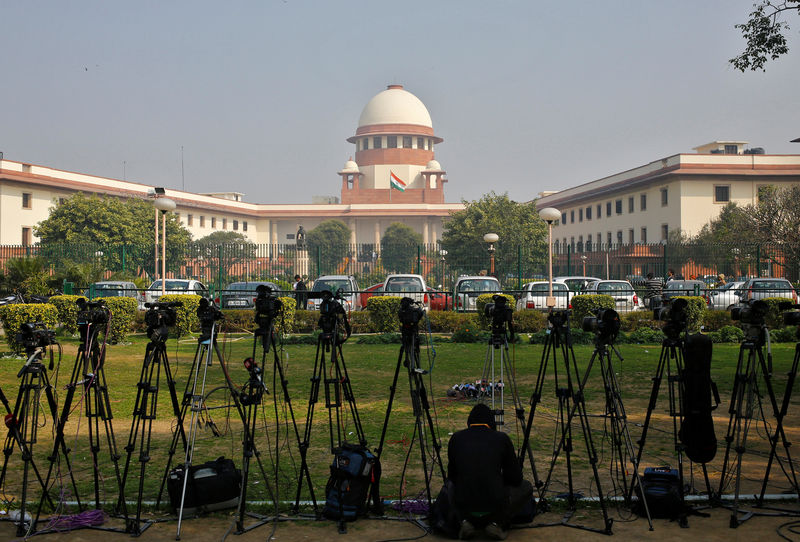By Rahul Bhatia
MUMBAI (Reuters) - India's Supreme Court will hear arguments on Wednesday to determine whether individual privacy is a fundamental right protected by the constitution, in a ruling legal scholars say will have far-reaching consequences.
The court has set up a rare nine-member bench to rule on the matter triggered by a petition challenging the mandatory use of national identity cards, which are known as Aadhaar, as an infringement of privacy.
Constitutional experts say if the court decides privacy is a fundamental right, it could open up to review a law criminalising homosexuality, a ban on the consumption of beef in many states and an alcohol ban in some.
"The consequences are huge," said constitutional scholar Menaka Guruswamy.
"This goes far beyond Aadhaar. The ruling will decide the manner in which constitutional democracy will endure."
India's government has argued in the past that the constitution, which came into effect in 1950, does not guarantee individual privacy as an inalienable fundamental right.
Critics say the Aadhaar identity card links enough data to create a comprehensive profile of a person’s spending habits, their friends and acquaintances, the property they own, and a trove of other information.
There are fears the data could be misused by a government that argues Indians have no right to privacy.
In May, security researchers discovered that the Aadhaar information of as many as 135 million people had leaked online. UIDAI, the agency that governs Aadhaar, has repeatedly said that its data is secure.
Guruswamy said the concern was that if the court were to throw out privacy as a basic right, it would give the state much greater powers to monitor people and to enact laws with an impact on personal freedoms.
"If the court rules for the government, then it's going to impact all kinds of footprints of citizens, both professionally, and in their private lives," Guruswamy said.
"It will impact my right to my body, to what I do at home, my communications, and everything else."
Critics say personal rights have come into sharper focus since Prime Minister Narendra Modi's ruling alliance took office in 2014 as it pushes a nationalist agenda at the cost of individual freedoms.
Alok Kumar Prasanna, a lawyer based in Bengaluru, said a court decision upholding privacy would come in conflict with the conservative leanings of the ruling coalition whose "basic cultural agenda is that the majority can impose its choices on the minority, or restrict their choices on anything, from food to sexual orientation".
